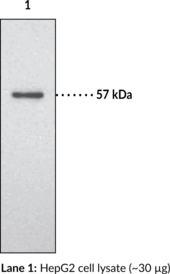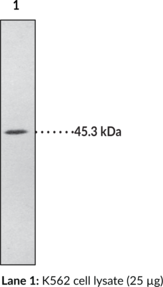Description
The toll-like receptors (TLRs) in mammals comprise a family of transmembrane proteins characterized by multiple copies of leucine rich repeats in the extracellular domain and an interleukin-1 (IL-1) receptor motif in the cytoplasmic domain. Like their counterparts in Drosophila, TLRs signal through adaptor molecules.{17463} The TLR family is a phylogenetically conserved mediator of innate immunity that is essential for microbial recognition.{17464} Most mammalian species have between ten and fifteen types of TLRs. Ten functional TLRs (TLR1-10) have been identified in human. Humans also encode a TLR11 gene but it contains several stop codons and protein is not expressed. However, murine and rat TLR11 are functional, and it is thought that human TLR11 function was lost during evolution. TLR2 is differentially expressed in human cells. Historically speaking, TLR expression has been most extensively studied in the immune system. Overall, TLRs are highly expressed in immune competent cells, including macrophages, dendritic cells, neutrophils, mucosal epithelial cells, and dermal endothelial cells. However, TLRs have also been identified in many other cell types and anatomical tissue locations where they are expressed either constitutively or induced during infection.
Synonyms: TLR2
Immunogen: CHO cells transfected with human TLR2 cDNA
Formulation: 100 µg of protein G-purified IgG in 200 µl PBS containing 0.05% BSA and 0.05% sodium salt
Isotype: IgG2a
Applications: FC (intracellular and cell surface), IP, and IHC
Origin: Animal/Mouse
Stability: 365 days
Application|Flow Cytometry||Application|Immunocytochemistry||Application|Immunohistochemistry||Application|Immunoprecipitation||Product Type|Antibodies|Monoclonal Antibodies||Research Area|Immunology & Inflammation|Innate Immunity|Pattern Recognition


